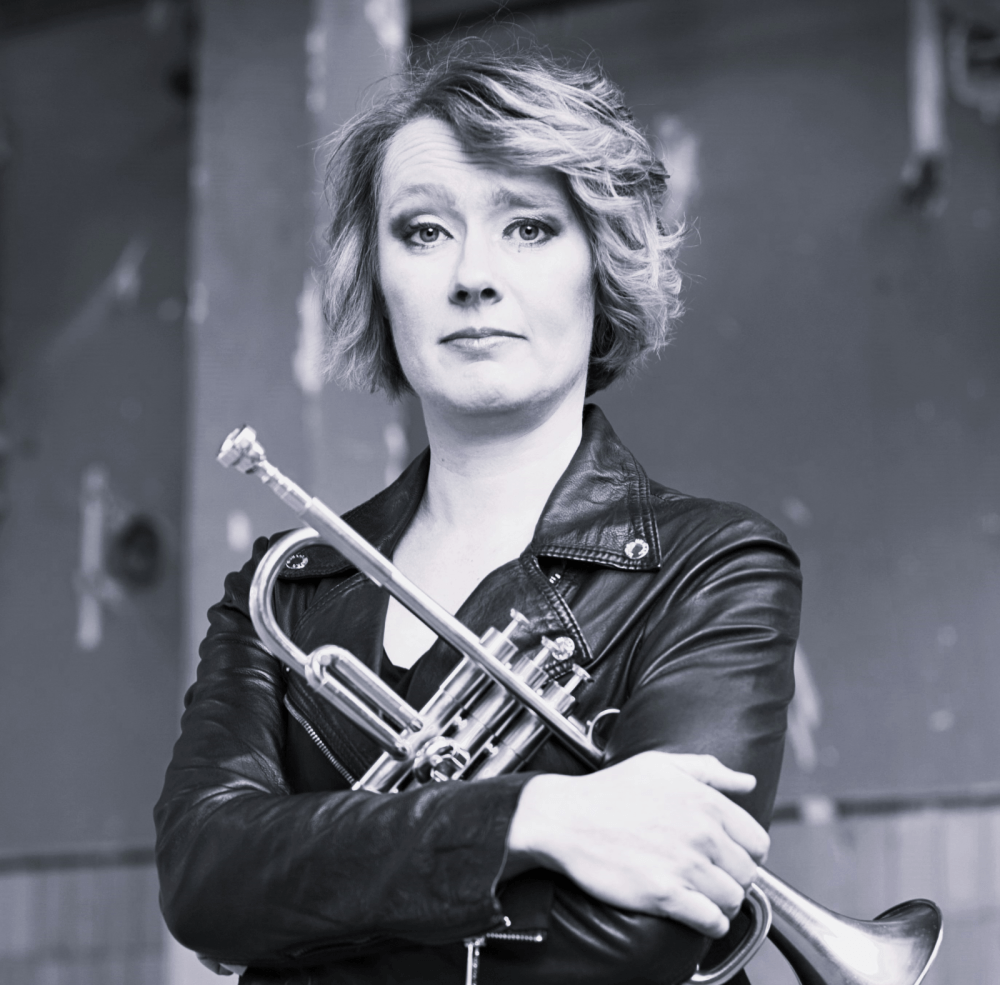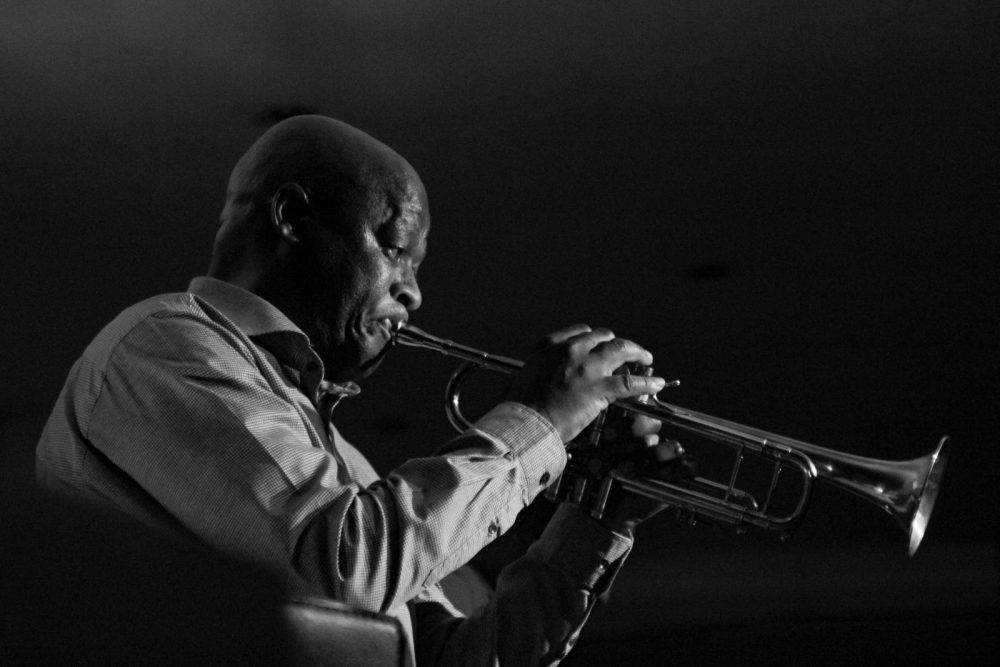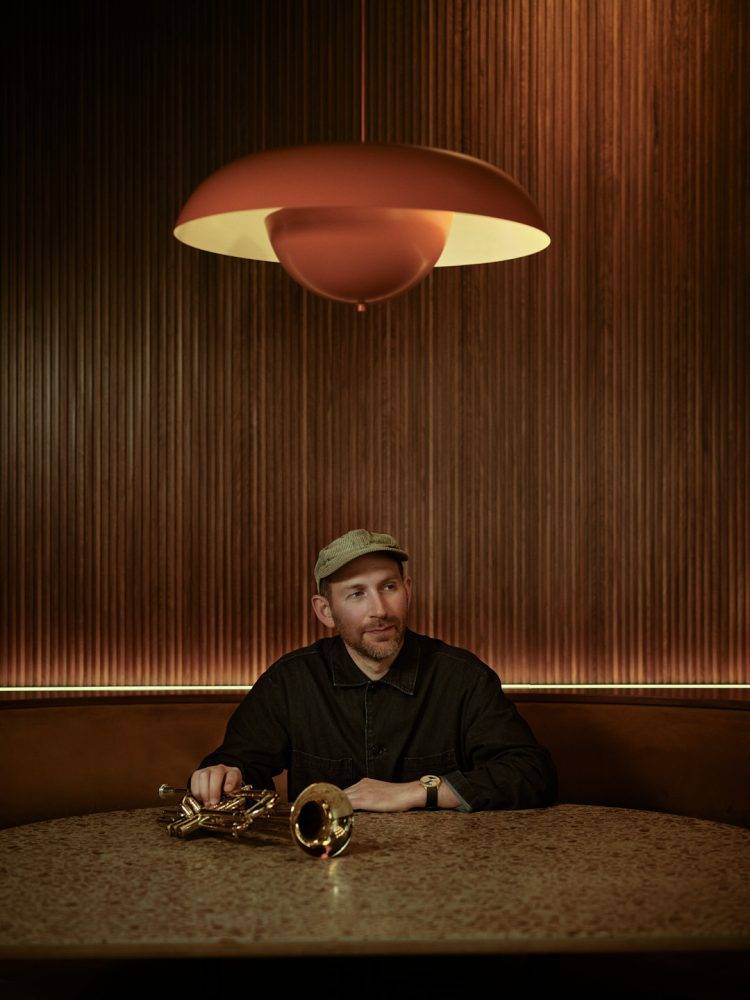Chris Botti plays on the edge of jazz with both contemporary classical and pop music sensibilities.
Thousands of jazz fans will descend on Joburg for the 25th iteration of the Standard Bank Joy of Jazz this weekend.
This festival’s logo, an illustration of arguably the most famous South African trumpeter, Hugh Masekela, gives more than a hint of a fabulous underlying theme. Amid the sound and lights, pomp and circumstance, the revelry will be marked by an exceptional roll call of trumpeters.
Though unannounced as such, this year, the festival’s curators have gathered the most exciting assembly of hornsmen and -women to showcase the instrument’s varied and glorious heritages from across the world and throughout jazz history.
It’s uncanny, and fitting, that one of Africa’s premier jazz events would be marked by a nod to trumpeters to mark its quarter-century milestone. The music was, after all, said to have been launched by the bold Buddy Bolden on the back of a brass instrument strikingly similar to the trumpet, the cornet.
It was Satchmo, Louis Armstrong, who widened the space for creative improvisation and made jazz into a soloist art.
 Ellister van der Molen will be part of the line-up at the Standard Bank Joy of Jazz, which takes place in Johannesburg this weekend.
Ellister van der Molen will be part of the line-up at the Standard Bank Joy of Jazz, which takes place in Johannesburg this weekend.
Another great trumpeter, Miles Davis, pushed it through various innovations and changes — cool, bebop, hard-bop, modal and fusion.
In the 1980s, it was the wily young virtuoso hornman Wynton Marsalis who was the pathbreaker as the genre sought to revitalise itself.
In jazz, like the curriculum, an appreciation of heritage is everything. For, at their best, even the most innovative voices are defined by how well they can tend to the time-tested traditions. To be sure, the genre is nothing if not a confluence of streams from which successive generations of jazzbos have drunk.
These are committed instrumentalists, constantly straining to push through variations on well-established languages.
This is in part why the myriad trumpet traditions represented on the 2024 Standard Bank Joy of Jazz programme are noteworthy. There is a horde of hornmen and -women who are all making a play for the coveted spot of the voice to herald us into the next age.
Consider the enterprising Cape Town-born Darren English, who’s made it his business to stretch the sonic potential of the Cape klopse cool into a global thing.
English was the 2023 Standard Bank Young Artist Award winner for jazz. The award is perhaps the best nod to acknowledge both his entrepreneurship and the potential reach of his musical vision. There’s a searching quality to his tone.
It’s conceivably owing to his wide range of creative pursuits. English is a painter and a designer too. He divides his life between the US and South Africa.
It is possible no trumpeter has inherited the throne of the smooth jazz domain with more verve than American Chris Botti. His highly polished lyrical and rounded sound is well suited to ballads and romantic themes.
It’s a quality that gave him easy access to crossover — playing on the edge of jazz with both contemporary classical and pop music sensibilities.
He will lead a collaboration with the Johannesburg Philharmonic Orchestra to open this year’s festival.
Comparable to Botti, though with less popular purchase and commercial success, Dutch-born Ellister van der Molen too has a polished and dependable classical style, albeit with more bite. Her undeniable technical facility lends an exciting skilful adaptability to her performances.
 Feya Faku will be part of the line-up at the Standard Bank Joy of Jazz, which takes place in Johannesburg this weekend.
Feya Faku will be part of the line-up at the Standard Bank Joy of Jazz, which takes place in Johannesburg this weekend.
UK-based sound selector and trumpeter Matthew Halsall lives in the musical house that pioneer John Coltrane built — at least in the open astral sound of late ’Trane.
He has found a way to draw on the long howl of the spirituals and modal jazz rooted in the American blues idiom, marrying them with the electronic music of the British club scene of his youth.
Halsall plays with an eccentric charm of snaking melodic lines over propulsive rhythm beds. The result is an idiosyncratic sparkle that has endeared him to both jazz purists and newbies to the music.
Both his horn playing and compositional bent reach for a sense of the epic and a grandeur like a William Turner seascape — a dance of mystery and marvel.
There’s an unassuming radiation that gathers about the tone and timbre of the trumpet in the hands of Feya Faku. Among the generation of Mzansi jazzmen and -women who assured our culture across the democratic divide in the 1990s, Fuka has a sound best marked by the katabatic wind that sends warmth down into the greater Cape of |Xam lore from across the great escarpment.
Faku’s horn sounds properly rooted when handling local idioms, as he does with the grammar of hard-bop. His penchant for composing tributes and homages has given him unique access to a variety of musical developments in our heritage.
Mandisi Dyantyis drinks from the same ancient well as Faku, with a proclivity for the highness of hymns. The afro-jazz man is rooted in the same place that gave us gems like Ntsikana’s Bell, where he takes us to a musical crossroads.
From one direction, it’s the heraldic aesthetic that saw the indigenisation of Calvinist catechism into the vibrant choral culture of the black church. But from the other side, jazz that was grabbed by the scruff of its neck and dragged into the shebeen to learn a liberating lore and language of lamenting landlessness and other problems of the people.
Dyantyis blows like he sings, with a preferential option for lift and lilt. He is more at home with dramatists and choristers than he is with technical instrumentalists. This is the tradition that shapes his magic.
 Blowing fans away: Matthew Halsall draws on the late John Coltrane, American blues and the electronic music of the British club scene of his youth for his idiosyncratic sound.
Blowing fans away: Matthew Halsall draws on the late John Coltrane, American blues and the electronic music of the British club scene of his youth for his idiosyncratic sound.
Jazz has a well-established history of taking pieces of pop music and lifting them to a higher aesthetic. Born in Alcácer do Sal, Portugal, to Angolan and Cape Verdean parents, Jéssica Pina is the best contemporary embodiment of this pop impulse on the horn.
Her songbook exposes the appeal that club dance tunes, hip-hop and neo-soul hold for a jazz-loving millennial raised in a world dominated by electronic music but with Latin and Portuguese influences.
Pina’s music is refreshingly youthful with a measured sound. Her unhurried phraseology recalls lush, tender blowers like Roy Hargrove or even Mark Isham, who proudly carried the Miles Davis influences circa his electric fusion period.
It’s an embarrassment of riches. The only pity is that we won’t see all these stars of brass gathered on the same stage for a trumpet summit.
However, festivalgoers with an appetite for adventure and the agility to move between venues, will be treated to what is arguably the lushest gathering of trumpet traditions on one programme this season.
The 25th Standard Bank Joy of Jazz will take place at the Sandton Convention Centre in Johannesburg on 27 and 28 September.